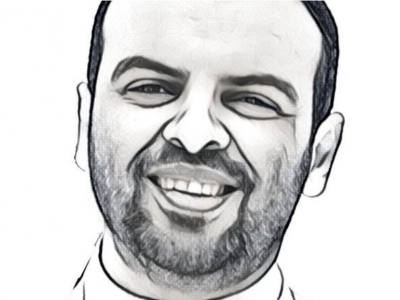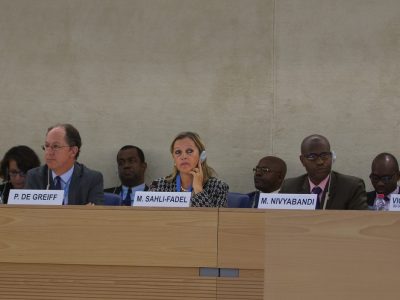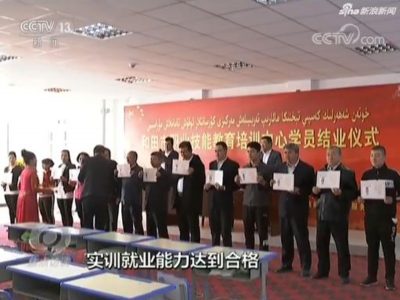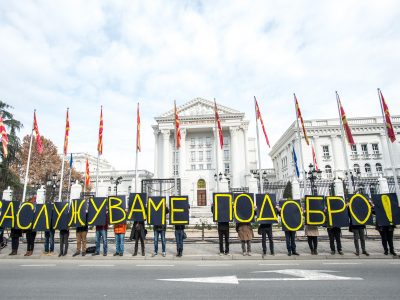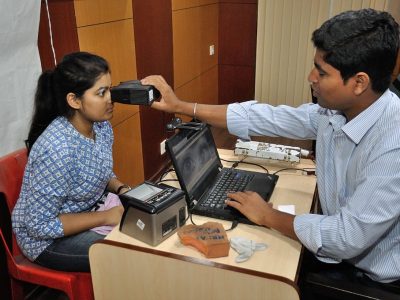Stories about Human Rights from October, 2018
Israa Al-Ghomgham, a Saudi woman facing the death penalty for peaceful protest
Al-Ghomgham, and many other Saudi Shiites, took to the streets in 2011 to demand better rights.
One dead in Sri Lanka amidst a constitutional crisis
Power struggle between ousted Sri Lankan PM and newly appointed PM has led to the death of a protester in Colombo.
A Mozambique surfwear retailer thought is was a good idea to name their store “Hitler”—Netizens disagreed
The "Hitler" store, which seems to have been in business since early October, is located in one of the largest shopping centers in the country.
Paramilitary group killed farmers in Philippines sugar plantation, fact-finding mission says
The "Sagay 9" massacre was the single most deadly attack against peasant activists under the Rodrigo Duterte administration.
Brazilian journalists face hacking, doxxing and other threats as election draws near
141 cases of threats and violence against journalists have been registered during the coverage of 2018 elections.
Online stories of the Venezuelan exodus
The difficult exodus from Venezuela to other countries in the region can be followed through the stories and recommendations of those who have already left the country.
Arrested in Saudi Arabia, and then disappeared: Yemeni writer Marwan Almuraisy
In the authoritarian kingdom, the crackdown against independent voices has escalated under Mohammed Bin Salman's rule.
Ukraine is outsourcing law enforcement to private companies that don't respect human rights
Their mandates are based solely on contracts signed between them and the city -- which vary a lot from city to city -- and mechanisms of accountability are virtually nonexistent.
Will Syria follow in the UAE's footsteps and censor VoIP services?
A policy banning VoIP services will present a direct threat to Syrians’ rights to privacy and freedom of expression.
Burundi clamps down on international NGOs and rejects human rights criticisms
In September, the National Security Council announced all NGOs – except in hospitals and schools – were suspended for three months from October 1, and mining companies for one month.
In Iran, state-sanctioned messaging apps are the new hallmark of internet nationalization
Since they censored Telegram, Iranian officials have deployed aggressive measures in an effort to promote national messaging services.
As China legalizes Xinjiang ‘re-education camps’, Weibo netizens cheer on
China has switched its public relations tactics from denying to defending the camps, and the u-turn immediately reflected back on the social media conversation.
Serbian authorities clamp down on a health charity after it exposed state negligence
The methods of pressure against Serbian civil society organizations bear resemblance to those used by governments in Central and Eastern Europe, in particular in neighboring Hungary and Macedonia.
Nationwide far-right protests in Japan met with vigorous anti-racism opposition
The main organizing force behind the racist marches is Japan First Party, a political party founded in 2016 who is the direct successor of a much older anti-Korean hate group.
Macedonian propagandist calls for rape of female journalist, sparking outrage
The threat came from Cvetin Chilimanov, a well-known propagandist and dogged promoter of Macedonia's former ruling party.
When will Egypt release photojournalist Mahmoud Abu Zeid aka Shawkan?
More than one month after a Cairo court verdict that many saw as the end to his ordeal, Shawkan remains in jail.
Pashtun human rights activist detained at Islamabad airport, released after social media pressure
Gulalai Ismail is a well-known Pashtun human rights activist and founder of Seeds of Peace network.
Why are African governments criminalising online speech? Because they fear its power.
The noise we make on digital platforms scares oppressive regimes. In some cases, it can even force them to rescind their actions.
Japanese television program turns migrant raids and deportations into entertainment
"With no deep insights, without even a shred of critical analysis and the stupidity of superficial entertainment, [this] is the worst television program on Japanese television today."
Journalists across India share their testimony on the deteriorating state of media — and vow to fight back
Four journalists have been killed because of their work in 2018. Killings have evoked public outrage, but little response from the government.
Despite proven flaws, India's biometric ID scheme was upheld by the Supreme Court. Now what?
Legal scholars and social scientists are likely to pore over this significant judgment for its far-reaching impact on civil liberties and socio-economic issues.








